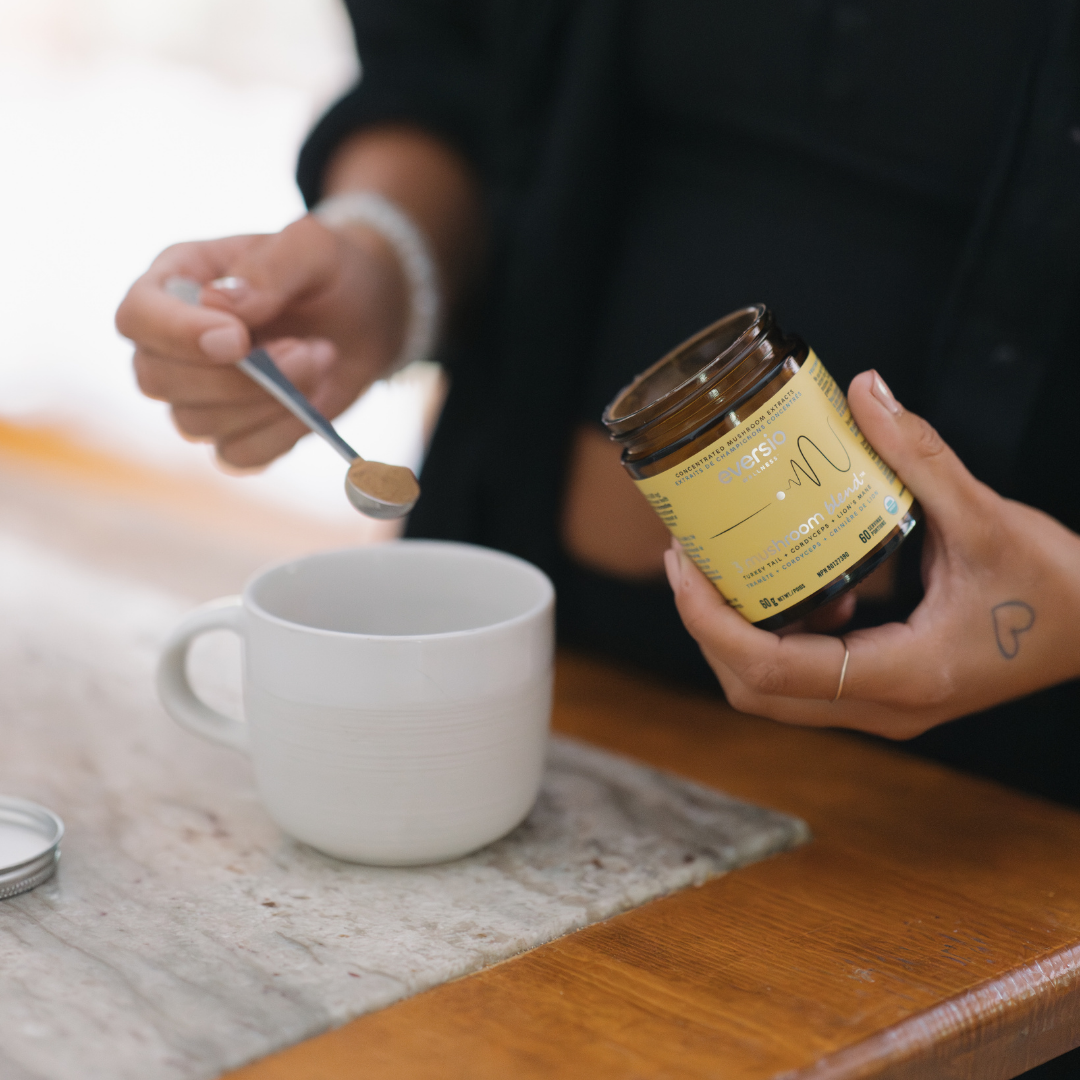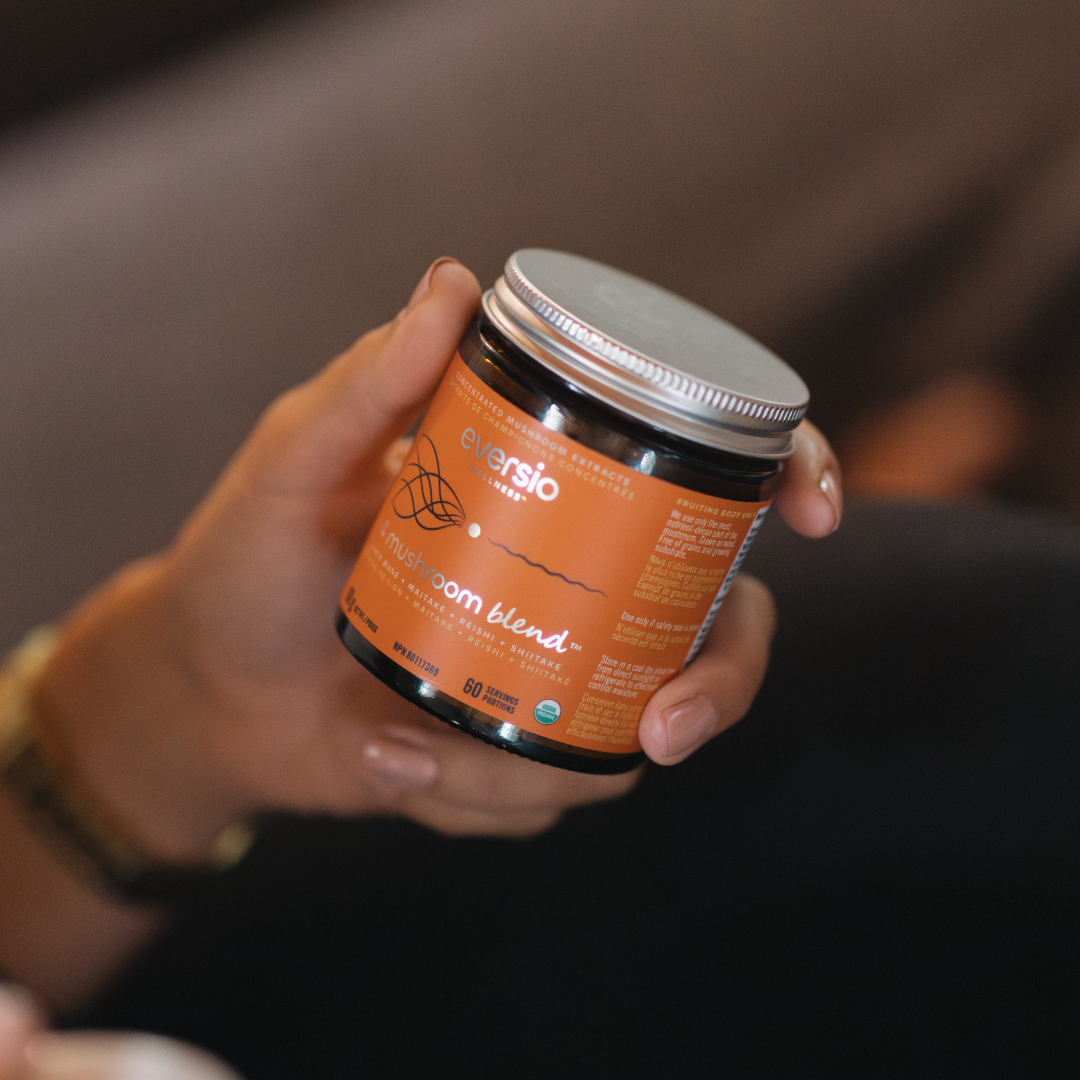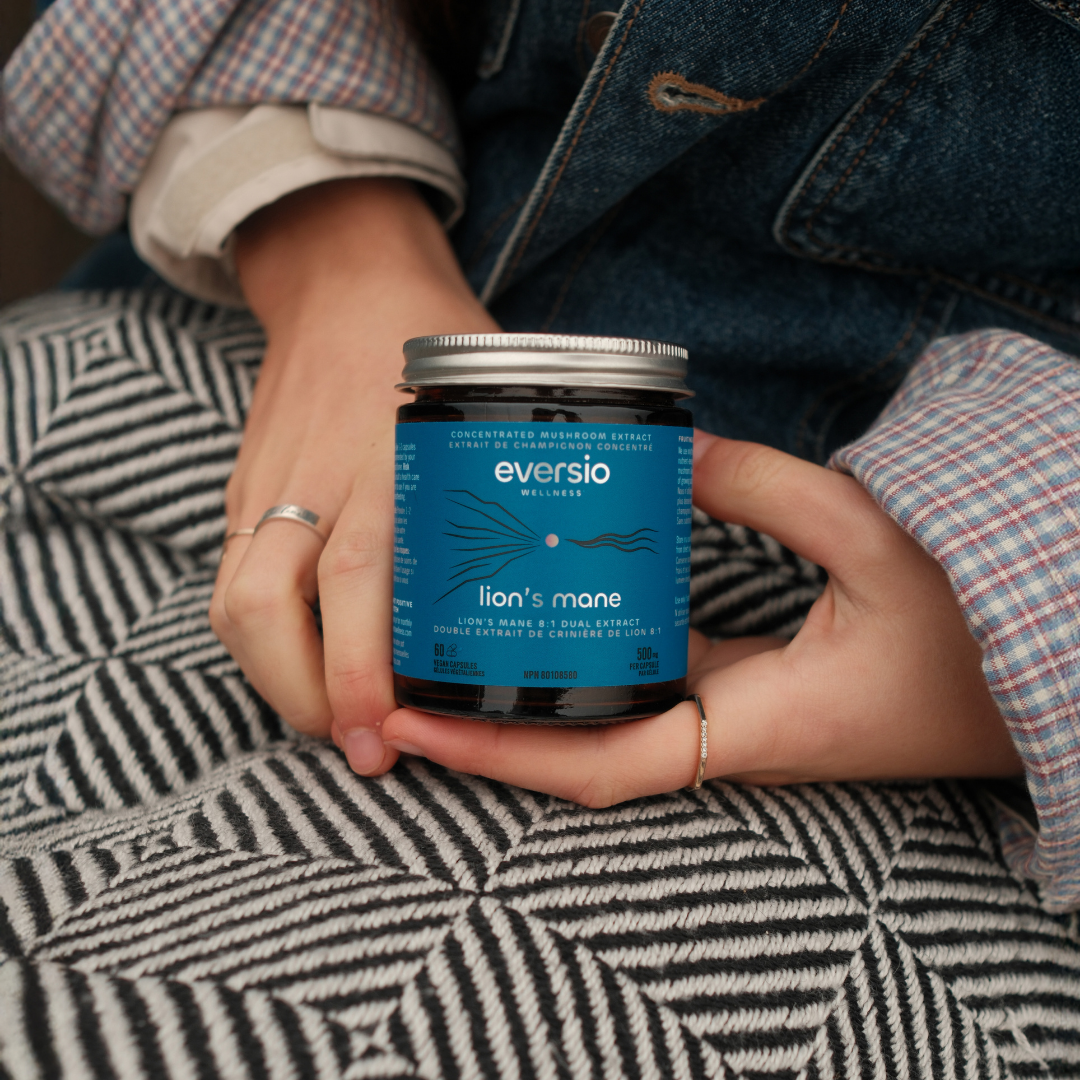Cardiometabolic diseases are becoming an increasingly greater challenge for global health [1]. Incidence is increasing worldwide, affecting the vitality and longevity of many people’s lives [1]. As discussed in previous articles, medicinal mushrooms have been used for centuries around the world to improve longevity, as they have benefits for the treatment and prevention of many medical diseases and conditions.
Of course, we are aware that most cardiometabolic diseases are strongly influenced by diet and lifestyle, but there are additional changes you can make to your life that may further enhance any existing steps you are already taking.
The Oyster mushroom is rich in functional ingredients and its consumption has led to improved health markers across the board; improved glucose and lipid metabolism, blood pressure regulation, even protection against cardiovascular disease have all been observed by its users [1]. A systematic review of 8 clinical trials researching this functional mushroom found that Oyster consumption led to reduced fasting and/or post-prandial glucose, as well as a reduction in blood pressure [1]. Let’s dive deeper into some more health benefits this interesting fungi has to offer!

Oyster Mushrooms May Protect Against Cardiovascular Disease
Lowering serum cholesterol levels coincides with a decreased risk of developing atherosclerosis. Atherosclerosis is the buildup of fats, cholesterol, and other substances on artery walls and this buildup is referred to as “plaques.” Plaques can cause arterial narrowing and block blood flow, or they may separate and lead to a blood clot. Overall, preventing atherosclerosis protects against development of cardiovascular disease and improves quality of life and longevity.
One study found that Oyster mushrooms were able to reduce cholesterol levels in the serum by 33% and cholesterol content in the liver by 20% after 12 weeks of consumption [2]. Not only did LDL (“bad”) cholesterol decrease, but Oyster improved levels of HDL (“good”) cholesterol in the serum, resulting in increased excretion of bad cholesterol from the body [2]. The underlying mechanism of these actions is Oyster’s ability to decrease cholesterol absorption from the gut by about 16%, which is a similar mechanism in which some cholesterol-lowering pharmaceutical drugs work [2]. Oyster may also prevent the formation of atheroma plaques in the arteries, thus protecting against development of cardiovascular disease [3].
A human clinical trial studied the effects of Oyster on 89 diabetic patients over a 24-day protocol and found decreased systolic and diastolic blood pressure levels, lowered plasma glucose levels, and decreased levels of cholesterol and triglycerides in the serum [4]. Additionally, the use of Oyster mushroom did not have any negative impact on liver or kidney health in any of the participants [4].
Oyster Mushrooms May Protect Against Oxidative Stress
Oyster mushrooms contain an important constituent known as ergothioneine, an intracellular antioxidant [5]. The fruiting body of Oyster contains high levels of ergothioneine, making the fruiting body extract a powerful force against development of oxidative stress [5]. Antioxidants help our bodies balance out free radicals (unstable molecules) and lessen or prevent the negative effects they may impose. When free radicals overwhelm our systems and cause an imbalance with antioxidants, oxidative stress can ensue and lead to cellular damage [6]. Free radicals have the ability to negatively alter our body’s proteins, lipids, even our DNA and result in premature aging and disease [6].

Oyster has Powerful Anti-inflammatory Actions
Oyster mushrooms also have powerful anti-inflammatory actions [7]. One study found that the mushroom extract suppressed secretion of TNF-a, IL-6 and other pro-inflammatory cytokines in the body [7]. Pro-inflammatory cytokines mediate inflammation and stimulate an inflammatory cascade in the body. They have beneficial actions when inflammation or infection is acute and hold important roles in increasing resistance to infection and preventing cancer development. However, in cases of chronic inflammation or pain, it is not beneficial as it will continue to encourage an inflammatory state. Thus, Oyster’s ability to decrease levels of these factors lends to its anti-inflammatory activities.
Oyster has also exhibited the ability to downregulate COX-2 and iNOS expression [7]. When inflammation is occurring in the body, this can induce expression of COX-2 and iNOS which often leads to an increase in the level of inflammation, pain, swelling, and other associated signs and symptoms. The COX-2 enzyme is one of the most common targets for anti-inflammatory pharmaceuticals; COX-2 inhibitors are a subgroup of non-steroidal anti-inflammatory drugs (NSAIDs) that treat pain and inflammation in many conditions, such as arthritis.
Oyster Mushroom May Enhance Immune Health
Oyster has also expressed immune modulating and enhancing effects in clinical research [8]. One double-blind, placebo-controlled clinical trial found that Oyster led to enhanced activation of the cell-mediated immune system through upregulation of natural killer cell activity [8]. Natural killer cells are lymphocytes of the innate immune system that limit spread and tissue damage of infectious and cancerous agents. Overall, it appears that the mushroom extract of Oyster may be beneficial in the prevention and treatment of infectious and cancerous diseases, among many other medical conditions.
Eversio Wellness currently carries the “Rejuvenate Blend,” a mushroom extract blend of Oyster, Chaga, Tremella, Lion’s Mane, Shiitake, and Maitake. This anti-aging mushroom blend helps rejuvenate from the inside out with powerful antioxidant and anti-inflammatory properties. Why not start your day with a hot cup of mushroom coffee or mushroom hot chocolate and retire with longevity!

We hope you have found this article informative. If you have any questions or comments, please feel free to leave them in the comment section below!
By Silvana Jakupovic — BSc and 4th Year Student of Naturopathic Medicine (CCNM-Boucher)
References
[1] Dicks L, Ellinger S. Effect of the Intake of Oyster Mushrooms (Pleurotus ostreatus) on Cardiometabolic Parameters-A Systematic Review of Clinical Trials. Nutrients. 2020 Apr 17;12(4):1134. doi: 10.3390/nu12041134. PMID: 32316680; PMCID: PMC7230384.
[2] Bobek P, Ozdín L, Kuniak L. Effect of oyster mushroom (Pleurotus Ostreatus) and its ethanolic extract in diet on absorption and turnover of cholesterol in hypercholesterolemic rat. Nahrung. 1996 Aug;40(4):222-4. doi: 10.1002/food.19960400413. PMID: 8810086.
[3] Bobek P, Galbavý S. Hliva ústricovitá (Pleurotus ostreatus) efektívne bráni rozvoju aterosklerózy u králika [The oyster mushroom (Pleurotus ostreatus) effectively prevents the development of atherosclerosis in rabbits]. Ceska Slov Farm. 1999 Sep;48(5):226-30. Slovak. PMID: 10566243.
[4] Khatun K, Mahtab H, Khanam PA, Sayeed MA, Khan KA. Oyster mushroom reduced blood glucose and cholesterol in diabetic subjects. Mymensingh Med J. 2007 Jan;16(1):94-9. doi: 10.3329/mmj.v16i1.261. PMID: 17344789.
[5] Liang CH, Ho KJ, Huang LY, Tsai CH, Lin SY, Mau JL. Antioxidant properties of fruiting bodies, mycelia, and fermented products of the culinary-medicinal king oyster mushroom, Pleurotus eryngii (higher Basidiomycetes), with high ergothioneine content. Int J Med Mushrooms. 2013;15(3):267-75. doi: 10.1615/intjmedmushr.v15.i3.40. PMID: 23662614.
[6] Pizzino G, Irrera N, Cucinotta M, Pallio G, Mannino F, Arcoraci V, Squadrito F, Altavilla D, Bitto A. Oxidative Stress: Harms and Benefits for Human Health. Oxid Med Cell Longev. 2017;2017:8416763. doi: 10.1155/2017/8416763. Epub 2017 Jul 27. PMID: 28819546; PMCID: PMC5551541.
[7] Jedinak A, Dudhgaonkar S, Wu QL, Simon J, Sliva D. Anti-inflammatory activity of edible oyster mushroom is mediated through the inhibition of NF-κB and AP-1 signaling. Nutr J. 2011 May 16;10:52. doi: 10.1186/1475-2891-10-52. PMID: 21575254; PMCID: PMC3120742.
[8] Tanaka A, Nishimura M, Sato Y, Sato H, Nishihira J. Enhancement of the Th1-phenotype immune system by the intake of Oyster mushroom (Tamogitake) extract in a double-blind, placebo-controlled study. J Tradit Complement Med. 2015 Dec 29;6(4):424-430. doi: 10.1016/j.jtcme.2015.11.004. PMID: 27774430; PMCID: PMC5067930.




















Leave a comment
All comments are moderated before being published.
This site is protected by hCaptcha and the hCaptcha Privacy Policy and Terms of Service apply.